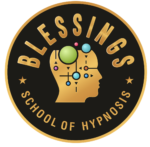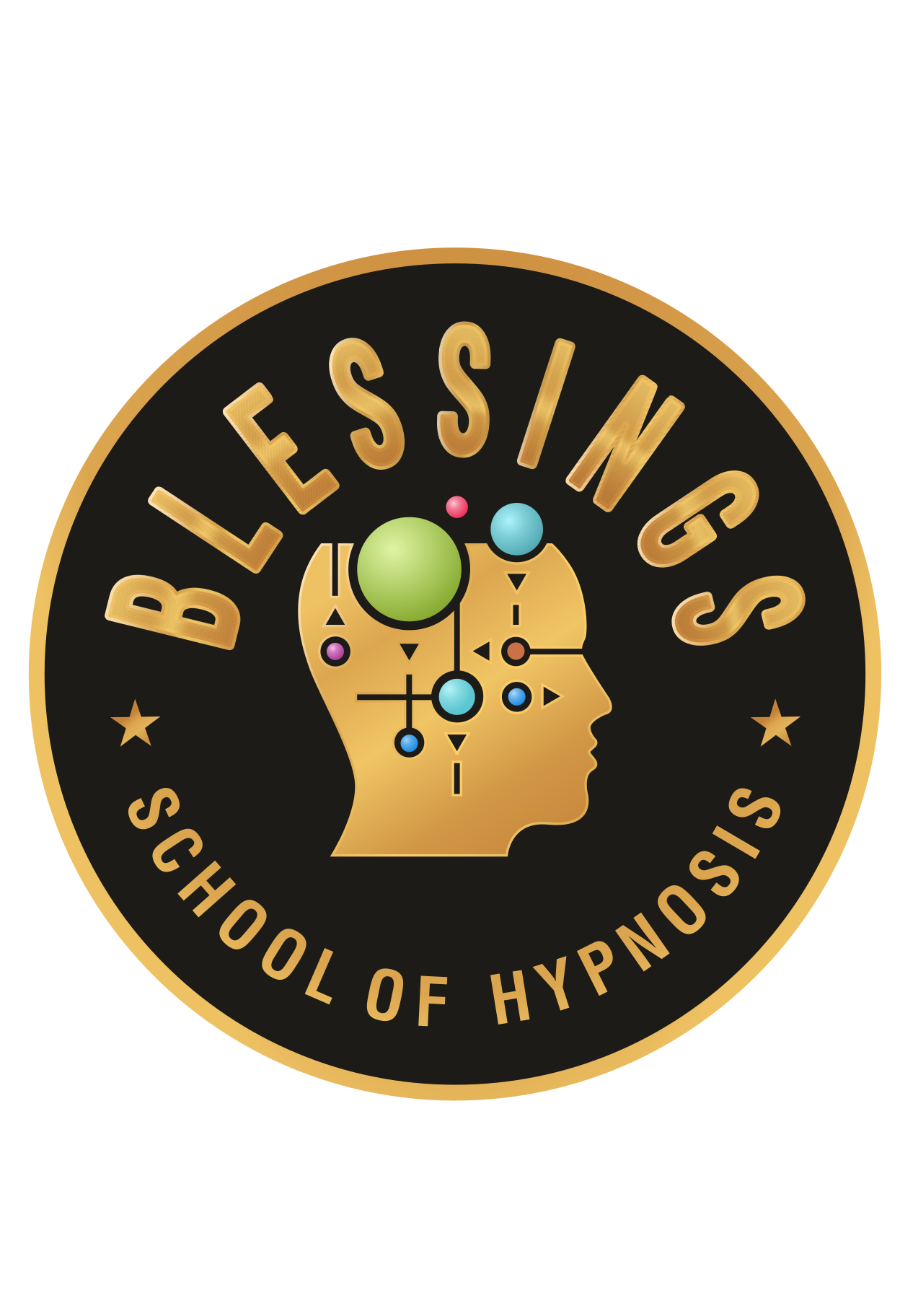Online Hypnosis Course
Master hypnosis through our Online Hypnosis Course, expertly designed to offer flexible, comprehensive, and interactive learning from the comfort of your home.

Blessings School of Hypnosis
Online Hypnosis Course
- Welcome to the Online Hypnosis Course offered by Blessings School of Hypnosis.
- In today’s fast-paced world, we understand the need for flexible learning options that don’t compromise on quality.
- Our online course is designed to bring the transformative power of hypnosis to you, wherever you are.
- Whether you’re looking to start a new career, enhance your professional skills, or simply explore the fascinating world of hypnosis, our course is tailored to meet your needs.
Blessings School of Hypnosis
Why Our Online Hypnosis Course?

Accessibility
Our Online Hypnosis Course allows you to learn from anywhere in the world, at any time that suits your schedule.
Expert Instruction
Benefit from high-quality teaching provided by renowned experts like Dr. Pradeep Kumar and Tarun Rhode, all delivered through our interactive Online Hypnosis Course platform.
Comprehensive Curriculum
Our Online Hypnosis Course covers everything from the basics of hypnosis to advanced techniques, ensuring a deep understanding of the subject.
Practical Application
Through virtual sessions and assignments, our Online Hypnosis Course provides hands-on experience in applying hypnosis techniques.
Community Engagement
Join an online community of fellow learners through our Online Hypnosis Course to share experiences, insights, and support.
Course Structure
Semester 1 Courses
Objective :
To give basic knowledge of hypnosis, its history To understand the misconceptions attached to it
To gain knowledge about observable facts of hypnosis
- Meaning of hypnosis and hypnotherapy, definitions, basic concepts in hypnosis, terminology in hypnosis
- General misconceptions, resistance
- The history of
- The history of hypnosis in
- Phenomenon of hypnosis : Ideomotor response, ideosensory activities, Catalepsy, positive hallucinations, negative hallucinations, time distortion.
- Various psychological , physiological and other theories of
- The concept of hypnotic susceptibility and its
- Hypnotizability scales and measurement of hypnotic
- Factors that influence suggestibility, objective and subjective trance
- Hypnosis induction techniques : Direct
- Principles of direct suggestions
- Deepening techniques, measuring depth in
- The process/ steps of hypnotherapy : Preparation of patient for hypnotherapy: Physical and mental, history taking, medical check up, rapport building, clarifications of doubts and misconceptions, suggestibility test, hypnotic induction, deepening of trance, ego strengthening, pleasant imagery, re orientation, review, discussion on session.
- Taking a case history, contradictions
- Communication skills : Attending and
- Creating therapeutic environment : empathy, unconditional love, non – being, judgemental, genuineness
- Adverse reactions and precautions in
Ethical consideration sand professional fees in practice of hypnosis.
Objective :
To make students understand the basic anatomy, physiology, higher functions of brain and their functional relation with each other.
- To gain knowledge in normal functioning of various biological
- To understand common psychopathological
- Basic anatomy of brain: Various parts of brain and their functional relation with each other.
- Physiology of brain functions: Voluntary and autonomic control of body, systems, higher functions of brain like thinking, memory, emotions, speech, sleep, etc.
- Various biological systems (digestion, respiration, circulation, excretion, endocrines, blood, lymph and neuro muscular tissues) and their common abnormalities.
- Physiology of pain sensation and associated emotion of
- Psychobiology of genes and its relevance to
- Information substances: molecules of emotions and
- Definition of abnormal psychology, causes of
- Theory of personality: Freud, Adler,
- Common psychopathological
Objective :
To learn script writing
- Applications of hypnosis in sports and athletics
- Applications of hypnosis in self development
Overview of clinical and other applications of hypnosis including scientific studies and their general outcome etc.
- Script writing for
- Induction of trance
- Deepening of trance
- Elicitation of phenomenon of hypnosis
- Script writing for
- Ego strengthening
- Pleasant imagery
- Types of suggestions
- Hypnosis in sports and
- Hypnosis in self-development, self-regulation, self-growth (positive emotions)
- Personality development and character building
- Applications of hypnosis in
- Pain problems (in general)
- Stress management
Objective :
To provide an introduction into the field of psychology and methods of applications. To make a student understand the psychological processes involved in sensation, perception, learning and memory.
To help student understand their own experience and also the social work by application of their knowledge on sensation, perception, learning and memory.
- Introduction and methods of psychology
Definition of psychology, popular notion of the discipline, psychology as a natural and social science.
Methods in psychology : Observation method, experimental method, survey method, psychological test cases, case study method, correlation method.
- Atention and Perception : Nature and definition of attention, kinds of attention, selective and sustained attention
Perception : Organising principles : Figure ground grouping ; perceptual constancies : shape size, size, brightness, factors affecting perception.
- Learning : Definition of Learning, principles of learning : Classical conditioning and operant conditioning, basic processes :
extinction, spontaneous recovery, generalization, discrimination, transfer of training, reinforcement of schedules.
- Emotion and Motivation : Emotion, definition of emotion, theories of emotions, facial feedback hypothesis, three elements of emotions : Physiology, behavioural and subjective
Motivation : Nature and definition : Motivational cycle; frustration of motives and conflict, primary and social motives.
The aim of this module is for students to become sufficiently confident and skilled in the application of hypnosis within their professional work.
Students have 90 hours of practice distributed during the semester. During this paper, students will have a few demonstration sessions on different techniques and process of hypnotherapy. Students are then required to carry out therapeutic practice on minimum five clients/ subjects in the field of their work, outside of classroom. These 90 hours include preparation, practice and report writing. Report on these cases will be considered for internal assessment carrying 50% of total paper credit.
The following content will be covered under clinical practice
- Induction of hypnosis by direct techniques
- Deepening of hypnosis
- Ego strengthening
- Pleasant imagery
- Phenomena of hypnosis
- Suggestibility tests
- Awakening/ Alerting/ Termination of trance
Viva voice will be conducted at the endof the semester I, by a panel of examiners appointed by the head of the department. Viva voice will be based on entire course covered during the semester and will focus on students, grasp of core courses and insights that they have developed in the subject, and application of theory in their profession.
Semester 2 Courses
Objective :
To introduce the hypnosis induction techniques Framing of indirect suggestion
The process of hypnotherapy
- Hypnosis induction techniques : Indirect / Ericksonian techniques. Principles of indirect/Ericksonian hypnotic suggestions, framing of indirect suggestion Waking hypnosis, pediatric hypnosis.
Phenomenon of hypnosis : Analgesia, anesthesia, amnesia, hypermnesia, dissociation, depersonalization, revivification, age regression, agr progression, hyperesthesia, posthypnotic hallucinations, somnambulism, automatic writing.
- The process of hypnotherapy : Problem identification and goal setting, therapeutic scripts Therapeutically utilization of trance-suggestions, visualizations, metaphor Post hypnotic suggestions, self hypnosis.
- Indications of hypnosis in medical, dental and psychological ailments in adults and children, Indications of hypnosis in sports, study, self development and other Transference, counter transference, handling abreactions, issues dealing with pediatric hypnosis.
- Basic ingredients of hypnotherapy. Physical surroundings of hypnotherapy. Structuring the therapeutic situation.
Professional societies and associations related to hypnosis.
Objective :
To understand major psychotherapy
To utilize hypnotic phenomenon and techniques Designing a therapeutic session
- Major psychotherapies : Psychoanalytic (Freudian) therapy REBT, behaviour modification and non directive (roger) approaches.
Psycho- psychological interface : psycho-neuro immunology, psycho- neuro endocrinology.
- Utilizing hypnotic phenomenon for therapeutic intervention. Hypnotherapeutic techniques I : ego management – western and eastern (Ahankar shuddhi) approaches.
Hypnotherapeutic techniques II : Sensory imagery conditioning, Stein’s clinched fist techniques, Chiasson’s techniques etc.
- Hypnotherapeutic technique III : Hypnoalytic approaches viz. Age, Regression, sub conscious exploration, Dream indication etc. Inner child healing, Gestalt approaches, The affect bridge technique
- Designing a therapeutic session, Assessment in Ericksonian hypnotherapy, Progress assessment, follow up and Evaluation, and conclusion
of therapy .
Objective :
To understand hypnosis in various medical specialities Treating terminal illness and psychiatric ailments
- Hypnosis in various specialities of medicine: Internal medicine Including cardiology, pulmonology, endocrinology, neurology etc, General surgery, obstetrics & gynaecology, orthopaedics, Dermatology, sexual medicine, anaesthesiology and others.
- – Hypnosis in treatment of cancer and other terminal
- Hypnosis in burns and other
- Hypnotics in dentistry (Hypnodontics).
- Hypnosis in paediatrics: Habit disorders: Thumb sucking, nail biting, enuresis, stammering, juvenile delinquency.
- – Hypnosis in physiotherapy, obesity, sleep disorders
- Hypnosis in substance
- Forensic (Investigative)
- Hypnosis in psychological and psychiatric ailments: Anxiety, phobia, depression, obsessive compulsive disorder, sexual disorders, somatoform PTSD & borderline and psychotic conditions, child birthing.
The aim of this module is for students to become sufficiently confident and skilled in the application of hypnosis within their professional work.
Students have 90 hours of practice distributed during this semester. During this paper students will have few demonstration sessions on different techniques and process of hypnotherapy. Students are then required to carry out therapeutic practice on minimum 5 subjects in the field of their work, outside of classroom. Report on these cases will be considered for internal assessment carrying 50% of total paper credit.
The following content will be covered under clinical practice.
- Induction of trance by indirect techniques
- Suggestions by metaphor
- Demonstration and practice of different framing suggestions
- Demonstration and practice of techniques:
- Clinch fist
- Cision technique
- Empty chair
- Age regression
- Age progression
- CBT Techniques
- Sensory imagery conditioning
- Behavioural Modification techniques
Objective :
To help the student understand how the effect of people’s thoughts, emotions, motivations, and actions affect their health.
To help students understand, predict, control and ultimately change health related behaviour To help candidates use concepts of positive psychology in promotion of mental health.
- Stress and health: Stress and stressors; general adaption syndrome; Personality and stress; social factors in stress;
Coping mechanisms: problem focused coping; emotion focused coping; defence mechanisms; meditation as coping; cultural and religious factors as coping; cognitive coping styles, casual attributions, sense of control, learned helplessness; hardiness, social resources and social support, emotional disclosure
- Health recommendations and behaviour change: Prevention of health problems; adherence to medical regimens; sources of health information; persuasion; changing beliefs and attitudes; social cognitive theory; self-regulative theories; subjective social norms; what other people think, intentions and commitments; turning commitments into behaviour.
- Psychology of well-being: Subjective well-being happiness; positive emotions and well-being the broaden and build theory of positive emotions
- Positive traits, virtues and character strengths: Positive beliefs, self-esteem, self-regulation, optimism, virtues and strengths of character
Viva voice will be conducted at the end of the semester II, by a panel of examiners appointed by the head of the department. Viva voice will be based on entire course covered during the semester and will focus on students, grasp of core courses and insights that they have developed in the subject, and application of theory in their profession.
Flexible Learners
Individuals seeking a flexible learning path into the world of hypnotherapy.
Mental Health Professionals
Professionals in psychology, counseling, or coaching looking to add hypnosis to their toolkit.
Personal Development Enthusiasts
Anyone interested in personal development and exploring the capabilities of their own mind.
Learn Hypnosis
Certification and Opportunities
Upon completion, you’ll receive a certification from Blessings School of Hypnosis, opening doors to practice hypnotherapy professionally. Our graduates have gone on to establish successful practices, enhance their careers in mental health and wellness, and use hypnosis as a tool for personal growth.

Enroll Today
Take the first step towards mastering hypnosis from the comfort of your home. Our Online Hypnosis Course is more than just an educational program; it’s an opportunity to transform your life and the lives of others. Enroll today and start your journey into the fascinating world of hypnotherapy with Blessings School of Hypnosis.




